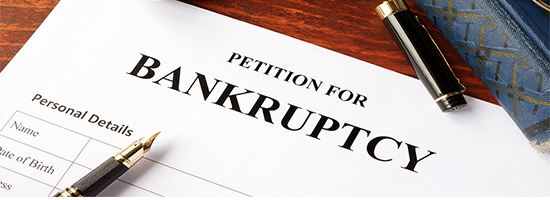
How to Prepare for Bankruptcy
According to the American Bankruptcy Institute, California takes the lead in bankruptcy filings for 2021. Bankruptcy can be an excellent way to escape crushing financial debt. Filing for bankruptcy might make sense if you cannot repay debts and need a fresh start.
The bankruptcy process to have your debts discharged can be confusing and overwhelming. If you’re located in Cathedral City, California, or throughout the Coachella Valley, consider speaking with a bankruptcy lawyer at the Law Office of Robert L. Firth to understand applicable laws and regulations prior to filing. We can help you take the necessary steps to prepare for bankruptcy.
What to Do to Prepare for Bankruptcy
If you have made the decision to file for bankruptcy, do the following four things to make sure that you are properly prepared for the filing:
Get the last filed tax return filing. While debtors are not required to have their tax return filings current when filing for bankruptcy, there is a requirement to provide the last filed tax return when filing necessary forms.
Pay off the necessary bills. Even if you are preparing to file for bankruptcy, you still have an obligation to pay off certain bills. Such bills include alimony payments and tax debt, among others.
Stop automatic payments before filing. Filing for bankruptcy will stop automatic payments or charges once creditors receive notice of the filing. However, if you authorized automatic debits to take automatic payments from your bank accounts or paycheck, you will typically need to file a request to make those automatic payments stop.
Document all debt information honestly. One of the requirements of filing for bankruptcy is to be completely honest and thorough about your debt and finances. When filing for bankruptcy, you must declare, under penalty of perjury, that all the debt information you provided is accurate. If you are not honest when providing your information, you could face criminal penalties for bankruptcy fraud.
What Not to Do Prior to Filing for Bankruptcy
When preparing for bankruptcy, there are certain actions you should avoid taking before filing the necessary forms and documents:
Do not pay debts that would be discharged. Filing for bankruptcy will automatically release you from personal liability for certain types of debt. Since you will no longer be required to pay off debts that are discharged, it does not make sense to pay them if you are planning to file for bankruptcy.
Do not wait until your creditors have obtained a judgment. Some people choose to wait until one of their creditors has obtained a judgment against them before filing for bankruptcy. However, although bankruptcy can wipe out your creditors’ abilities to collect a debt, judgments can result in a lien on your property. If a creditor has a lien on your property, you could still lose the property even if you file for bankruptcy.
Do not use your retirement accounts to pay off debt. Since filing for bankruptcy can protect most retirement funds, avoid using your retirement accounts to pay off debt before the filing.
Do not acquire new debt. Avoid incurring new debt 70 to 90 days before filing for bankruptcy. If you do acquire new debt shortly before the filing, the creditor might accuse you of fraud by arguing that you had no intention to pay it back.
Do not transfer your funds or property. Avoid moving your assets or transferring your funds or property in an attempt to save them. Any property you have transferred within two years before filing for bankruptcy can be recovered through a lawsuit filed by a bankruptcy trustee.
How Legal Counsel Can Help
If you are considering filing for bankruptcy, you might want to discuss your unique case with a knowledgeable attorney to help you understand your options and the filing process. Here are several reasons to consider consulting with a bankruptcy lawyer:
Assess your situation. A lawyer will thoroughly evaluate your particular situation to discover your financial goals and help you understand your options to get rid of some or all of your debts.
Determine your best course of action. If you think that bankruptcy is the only option left, you might want to talk with a skilled attorney to discuss alternatives to bankruptcy (if available) and determine the best course of action in your specific situation.
File the necessary forms. Filing for bankruptcy is all about gathering financial information and filing forms. A knowledgeable attorney can help you file the necessary forms in time to meet all applicable deadlines. Missing deadlines can lead to the dismissal of your bankruptcy case.
Appear in court. When filing for bankruptcy, a debtor is required to attend mandatory hearings. An attorney will represent your best interests at the hearing.
At the Law Office of Robert L. Firth, our experienced and results-driven bankruptcy attorney has decades of experience assisting debtors in Cathedral City, Desert Hot Springs, Palm Desert, Palm Springs, and throughout the Coachella Valley. We are prepared to review your case objectively and help you prepare for bankruptcy.
